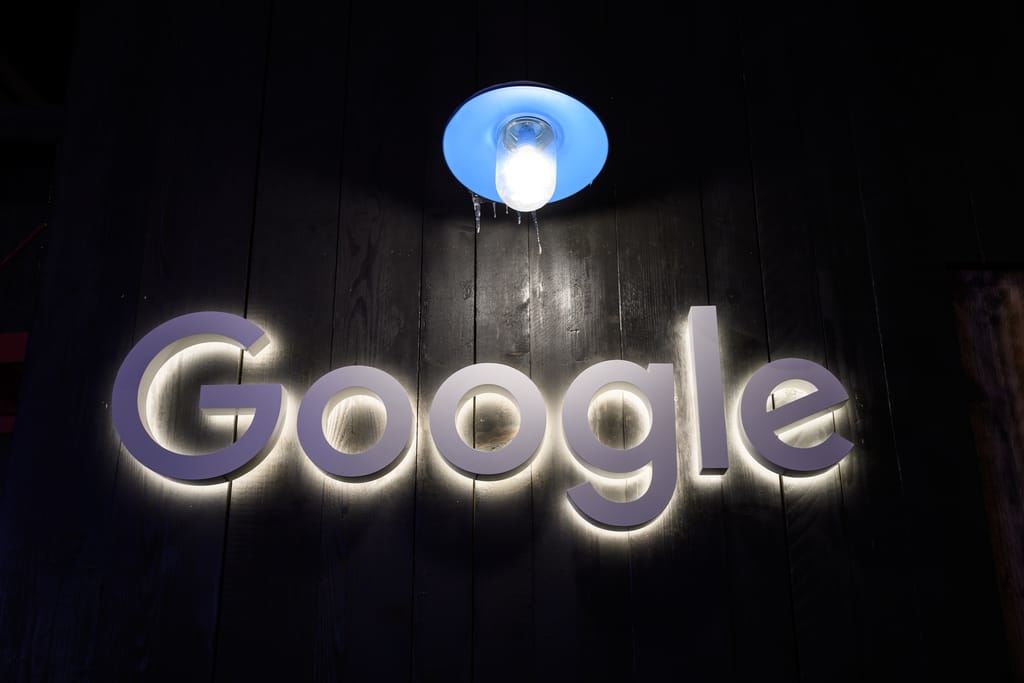
Google vs. EU, Part 2: Record EU fine set for Wednesday ruling
Round 2 of Google vs. the European Commission comes on Wednesday when the European Union's General Court rules on a record €4.34 billion fine for the search giant in a landmark case over its efforts to dominate the mobile phone market.
While the Commission won a resounding victory when judges upheld its first Google investigation last year, the ruling on Google's mobile-phone operating system Android will come as antitrust officials are licking their wounds after two big court defeats that canceled fines for chip firms Qualcomm and Intel.
“If they lose key parts of the Android case next week, it would be a really bad outcome for the Commission,” said Dirk Auer, director of competition policy at the International Center for Law & Economics, a U.S.-based research center backed by institutions and industry partners. “It could mean that almost [a] decade of competition enforcement, in this case, would be in part rejected by judges in Luxembourg.”
The Android case focuses on three types of contracts Google signed with smartphone manufacturers and telecom operators, which helped it expand a search empire that now faces very little competition.
First was the so-called mobile application distribution agreements (MADA) which required smartphone manufacturers to pre-install Google’s search and browser systems in order to carry the company’s Play Store app. Anti-fragmentation agreements (AFAs) also forced smartphone makers to steer clear of running alternative versions of the Android operation system. Lastly, the Commission took umbrage at Google’s revenue sharing agreements (RSAs) which allowed search revenues to be shared with mobile operators and smartphone manufacturers.
The Commission's investigation was sparked by a 2013 complaint from FairSearch, whose members include Oracle and Nokia and previously included Microsoft. The group is spearheaded by Thomas Vinje, a campaigning lawyer whose complaints helped fuel an EU antitrust battle against Microsoft in the early 2000s.
Sharing revenues
The Commission’s reading that Google’s revenue-sharing agreements amounted to a form of exclusivity rebate could be one of the more vulnerable parts of the Commission’s decision that Luxembourg will judge next week.
“The EU courts are concerned that the Commission is not properly discharging its burden of proof when it comes to showing anti-competitive effects,” Auer said, referring to the recent EU court losses against Intel and Qualcomm, both cases of which involved rebate payments to buyers for exclusive deals.
“The key question is the extent to which the coverage of those revenue-share agreements is sufficient to qualify as an infringement,” said FairSearch's Vinje. “It’ll be interesting to see how the court writes that up, since the evidence is confidential.”
Vinje also warned that the EU’s investigation into Google’s anti-competitive conduct may also have run into “procedural issues” akin to the Intel and Qualcomm cases — a plea raised by Google as part of a September hearing.
As part of the five-day showdown, Google said its rights of defense had been infringed upon as part of the Commission’s lackluster following of protocol. The company’s lawyers accused Brussels of not transcribing interviews properly, thereby hindering Google from rebutting any claims made by rivals in closed-door talks.
The DMA remedy
Google was ordered to remedy its anticompetitive harm over mobile apps for search and in 2018 introduced a choice screen for search apps to bid to be shown as an alternative to Google's search app on new phones.
 Competing firms in the search business are now relying on the European
Union’s recently adopted Digital Markets Act (DMA) to ensure they get
the changes they originally sought, almost a decade after FairSearch’s
original complaint was filed
Competing firms in the search business are now relying on the European
Union’s recently adopted Digital Markets Act (DMA) to ensure they get
the changes they originally sought, almost a decade after FairSearch’s
original complaint was filed
Smaller rivals Qwant and DuckDuckGo complained that this didn't go far enough to give them a chance to take on Google's power over apps. While Google was eventually forced to ditch a paid auction system, the Commission didn't bow to rivals in overhauling the choice screen system completely or rolling it out to all phones or devices.
"DG COMP never consulted us proactively on the remedies. We had to publicly ask for it in an open letter,” a DuckDuckGo spokesperson said. “This ultimately led to limited improvements but since then we've had a constructive working relationship."
“The problem was that they didn't have a good remedy because they told Google to solve the problem itself,” added Alexandre De Streel, academic director at the Centre on Regulation in Europe (CERRE), whose members include Google and Microsoft, but also smaller companies such as DuckDuckGo.
Competing firms in the search business are now relying on the European Union’s recently adopted Digital Markets Act (DMA) to ensure they get the changes they originally sought, almost a decade after FairSearch’s original complaint was filed.
The rules — which will enter into force later this year — include forcing so-called gatekeepers such as Google to implement choice screens that allow users to change default settings when they first use a new system, as well as the obligation for firms not to prevent users from un-installing apps on their operating systems. Both concepts stem from the Android case.
“What the court will say next week could be interesting in interpreting those provisions,” De Streel said. “However, if the Commission loses aspects of the case, I don’t think it undermines the DMA, because it’s a different legal instrument that has the objective of ensuring contestability and fairness.”
For Vinje, the DMA is the ultimate answer.
"If the Commission were to lose on some of this, the DMA will kick in in the not-too-distant future and it’ll prohibit a lot of the same abuses,” he said.
The case number for the Google Android judgment is T-604/18.










